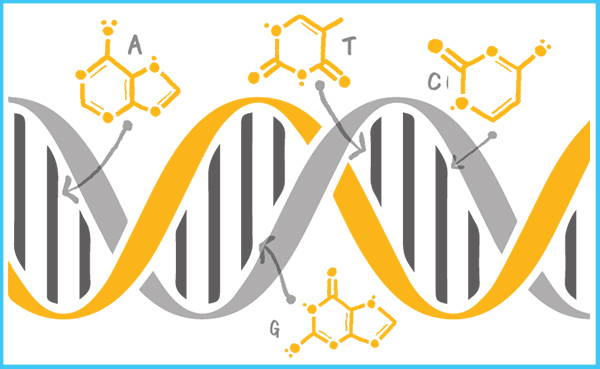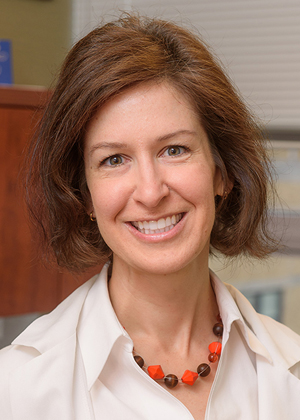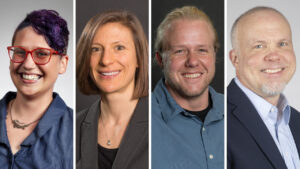
Loren Bauerband, an assistant professor in the Department of Health Sciences in the University of Missouri School of Health Professions, uses large data sets gathered from many sources — often called big data — to research health disparities facing transgender and gender-nonconforming individuals. Their work is complicated by the limitations of available data, which is often incomplete or not representative of the population.
“We know that transgender individuals experience a lot of barriers to health care and access in general,” Bauerband said. “What I do is extend data about those topics to other sets of trans demographic information.” By comparing and bridging different data sets, Bauerband can look for correlations that may reveal related health trends, such as risks related to cancer or heart disease.
Bauerband is one of many researchers in the School of Health Professions — and across Mizzou — who use big data to better understand the barriers encountered by often marginalized groups. Their collective research is slated to receive a major boost with the NextGen Precision Health initiative and its powerful set of resources, which will streamline data access and facilitate even greater collaboration. The resulting breakthroughs could profoundly shape the future of communities across the state.

Julie Kapp
Connecting Resources
NextGen will allow researchers to dive deeper into data sets by bringing together many resources under the same initiative, said Clark Peters, an associate professor in the School of Social Work. Peters, who studies child welfare and juvenile justice, said that NextGen’s nascent unified databases allow researchers to quickly cross-analyze multiple sources and find links between seemingly unrelated factors. Peters will use these databases to answer questions such as: What services might help reduce child mortality in Missouri? What programs are successful in keeping families safe and healthy? What communities need additional attention? And what might work to elevate health outcomes?
“Finding these connections is the great promise of NextGen,” Peters said. “It’s pulling together and taking advantage of all of these opportunities that we have, and there’s so much to learn.”
Julie Kapp, an associate professor of health management and informatics in the MU School of Medicine, noted that a number of groups at Mizzou are already working in concert to enable innovation, including the MU Research Data Center, the Missouri Cancer Registry and Research Center and the Center for Health Policy. “The ability to link these types of data together is a powerful and unique opportunity to uncover meaningful scientific discoveries,” she said.
Collaboration Saves Lives
An important part of the NextGen equation is population health, a field that examines the societal, lifestyle and environmental factors that affect the well-being of communities. Population health research requires a high degree of collaboration, said Claire Altman, an assistant professor in the Department of Health Sciences and in the Truman School of Public Affairs who studies the disparities facing Latinx immigrants and their children. “Health is multifaceted and a singular approach is inadequate,” she said. “It’s important to work with other researchers who understand health outcomes and health determinants as well as those who can test interventions and craft policies.”
Kapp echoed this sentiment and added that interdisciplinary research is at the core of NextGen.
“Team science tackles our leading health challenges by bringing together researchers from various academic backgrounds and perspectives to address a specific problem,” Kapp said. “This might include the collaboration of computer scientists, epidemiologists, medical researchers, basic scientists and community-health experts.”
Kapp said that another benefit of NextGen is that it allows researchers to see advancements through the entire discovery process — from data analysis to solution implementation. Part of that process is working with MU Extension, Missouri Telehealth Network and Show-Me ECHO health professional education programs. “We are working with our Extension partners — who are the experts in fulfilling this mission — to accelerate the translation of the science into our Missouri communities,” she said.
 Research for the Common Good
Research for the Common Good
Chenoa Allen, an assistant professor in the Department of Health Sciences who studies the well-being of recent and undocumented immigrants, said population health provides necessary context for the individualized treatments facilitated by NextGen. “I think when some people talk about precision medicine, they’re often thinking of targeting drugs aimed at the genetic code,” she said. “On the population level, we’re asking how to target interventions and policies to improve the health of entire groups.”
Kapp said that researchers are considering the full range of situations that impact health outcomes. It’s that convergence of factors that can make a big difference. “It is a very exciting time to be at MU,” Kapp said. “Our faculty, staff, students and administrators are working hard at designing these very complex solutions.”
By: Mizzou